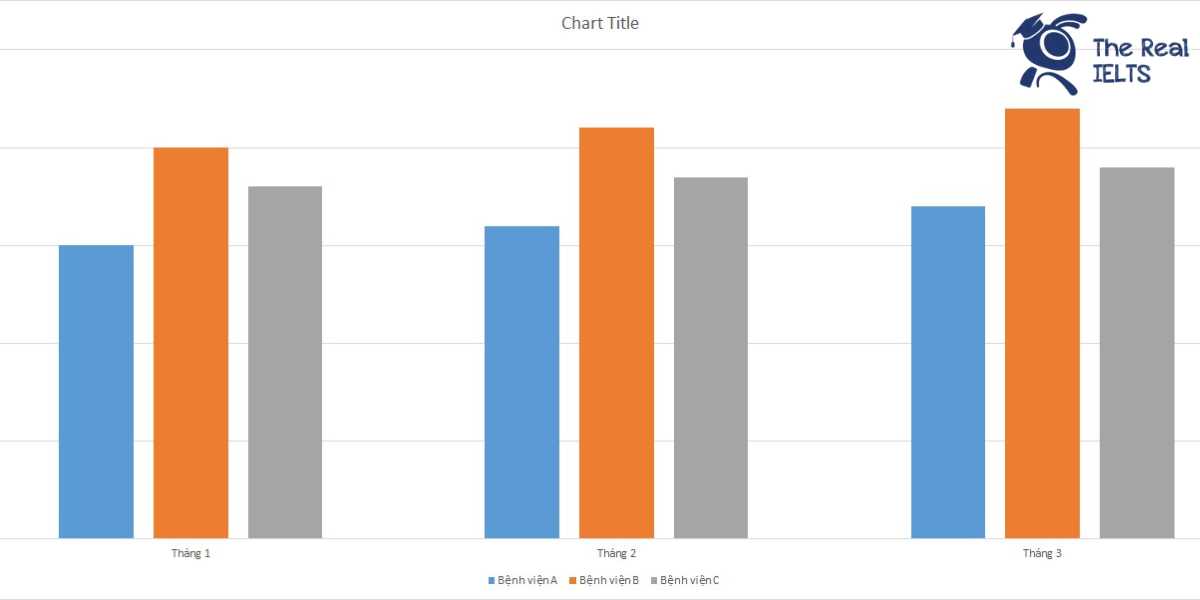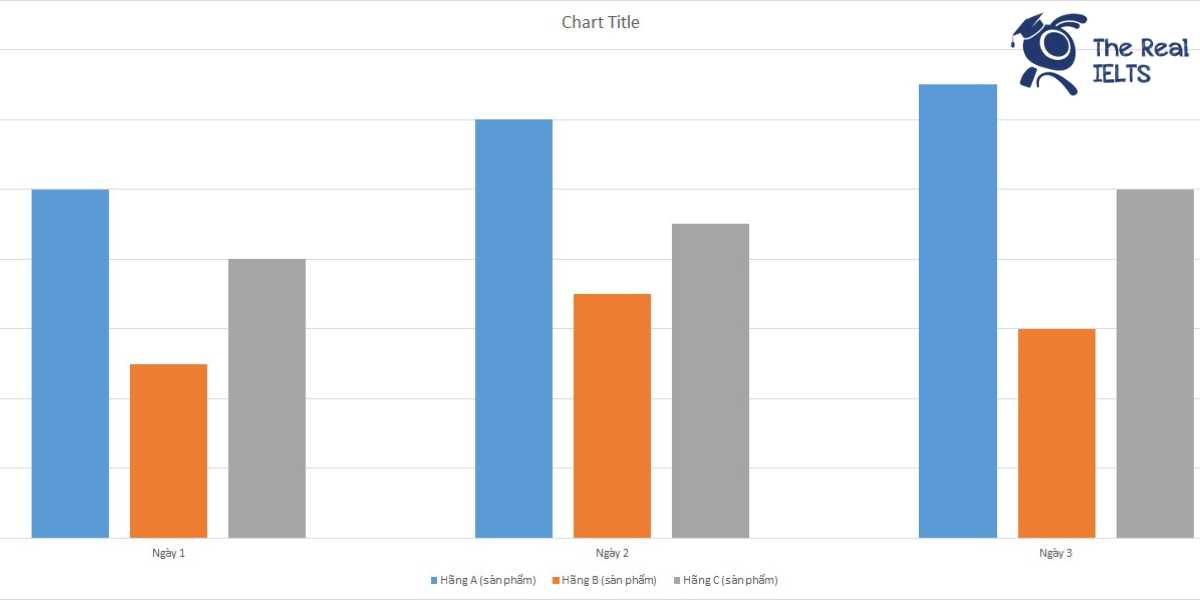Đề thi IELTS Reading có tiêu đề “The Impact of Climate Change on Marine Life”
Nhớ đọc thêm các bài luyện thi IELTS nhé.
IELTS Reading:”The Impact of Climate Change on Marine Life“
The Impact of Climate Change on Marine Life
Climate change has become one of the most pressing global challenges, and its effects are felt in nearly every corner of the natural world. One of the ecosystems most significantly impacted is the world’s oceans, where rising temperatures, acidification, and changing currents are affecting marine life on multiple levels. The diversity and complexity of marine ecosystems make them particularly vulnerable to these changes, and as a result, many species and habitats are under threat. Understanding the specific impacts of climate change on marine life is essential for devising effective conservation strategies and mitigating the broader environmental consequences.
One of the primary effects of climate change on marine ecosystems is the rise in ocean temperatures. As global temperatures increase due to the accumulation of greenhouse gases in the atmosphere, the oceans absorb much of this excess heat. Warmer waters can lead to significant disruptions in marine habitats, particularly for species that are sensitive to temperature changes. Coral reefs, often referred to as the “rainforests of the sea,” are especially vulnerable.
Coral bleaching, a phenomenon where corals expel the symbiotic algae living in their tissues due to stress from elevated temperatures, is becoming increasingly common. Without these algae, corals lose their vibrant colors and, more importantly, their main source of nutrients, often leading to large-scale coral mortality. This not only affects the coral species themselves but also the diverse marine life that depends on coral reefs for food and shelter.
Beyond coral reefs, rising ocean temperatures are also affecting fish populations. Many fish species rely on specific temperature ranges for breeding, feeding, and migration. As the waters warm, fish are forced to migrate toward cooler, often deeper, waters, which can disrupt entire ecosystems. Predatory species, such as sharks and tuna, may find themselves without their usual prey, while smaller species may struggle to find suitable habitats. Moreover, the geographic shift of fish populations can have serious economic consequences for coastal communities that rely on fishing as a primary source of income. Changes in fish availability can lead to reduced catches and economic hardship for those dependent on marine resources.
In addition to rising temperatures, ocean acidification is another critical issue driven by climate change. Oceans absorb roughly one-third of the carbon dioxide (CO2) emitted into the atmosphere, which leads to a chemical reaction that increases the acidity of seawater. This increase in acidity, although gradual, has profound implications for marine life, particularly species that rely on calcium carbonate to form their shells and skeletons.
Mollusks, such as clams, oysters, and some species of plankton, are especially vulnerable to acidification. As the pH of seawater drops, these organisms struggle to build and maintain their shells, making them more susceptible to predation and environmental stress. Since many of these species serve as the foundation of the marine food web, their decline could have ripple effects throughout the ecosystem.
Furthermore, climate change is also altering ocean currents, which play a crucial role in regulating the distribution of nutrients and heat throughout the oceans. Currents help transport nutrients from the deep ocean to surface waters, where they support phytoplankton, the base of the marine food web. Disruptions to these currents can lead to nutrient imbalances, which may reduce the productivity of marine ecosystems. In some regions, this has already resulted in “dead zones,” where oxygen levels are so low that few marine species can survive. These hypoxic zones are expanding due to the combined effects of climate change and human activities such as agricultural runoff, further endangering marine biodiversity.
Another significant impact of climate change on marine life is the loss of polar ice, which affects species that rely on sea ice for survival. In the Arctic, sea ice is melting at an unprecedented rate, threatening species such as polar bears, seals, and penguins. Polar bears, for example, depend on sea ice to hunt seals, their primary food source.
As the ice melts, they are forced to travel greater distances to find food, leading to increased energy expenditure and a decline in body condition. This not only affects individual bears but also has broader implications for polar bear populations as a whole. Similarly, seals and penguins that use sea ice for breeding and resting are finding it increasingly difficult to survive as their habitat disappears.
The effects of climate change on marine life are not limited to specific species or regions; they have the potential to disrupt entire ecosystems. For example, the loss of biodiversity due to coral bleaching, ocean acidification, and the decline of polar species could lead to the collapse of marine food webs. This, in turn, could affect human communities that depend on marine resources for food, tourism, and livelihoods. Additionally, the changing behavior of fish populations, including their migration patterns and reproductive cycles, could have long-term consequences for global food security, as many communities rely on fish as a primary source of protein.
In conclusion, the impact of climate change on marine life is far-reaching and multifaceted. From rising ocean temperatures and acidification to the loss of polar ice and changing currents, marine ecosystems are facing unprecedented challenges. The consequences of these changes are already being felt, and they will likely intensify in the coming decades. Addressing the impacts of climate change on marine life requires immediate and concerted global action. Efforts to reduce greenhouse gas emissions, protect vulnerable species and habitats, and promote sustainable fishing practices are essential if we are to preserve the health and biodiversity of the world’s oceans for future generations.
Đề bài thi IELTS Reading
Multiple Choice Questions (MCQs)
- What is one of the most significant ecosystems affected by climate change?
- A. Rainforests
- B. Deserts
- C. Oceans
- D. Mountains
- What phenomenon occurs when corals expel the algae living in their tissues?
- A. Ocean acidification
- B. Coral bleaching
- C. Marine migration
- D. Hypoxia
- How do warmer ocean temperatures affect fish populations?
- A. Fish migrate to cooler waters
- B. Fish stop breeding
- C. Fish become more resilient
- D. Fish thrive in warmer waters
- Which species is most vulnerable to ocean acidification?
- A. Whales
- B. Sharks
- C. Mollusks
- D. Seaweed
- Why is ocean acidification dangerous to marine life?
- A. It increases the temperature of the ocean
- B. It makes it difficult for species to form shells
- C. It reduces the amount of oxygen in water
- D. It increases the amount of food available to marine animals
- What happens to marine ecosystems when currents are disrupted?
- A. Phytoplankton populations increase
- B. Nutrients are distributed evenly
- C. Dead zones are created
- D. Oxygen levels rise
- Which species is affected by the loss of polar ice?
- A. Sharks
- B. Dolphins
- C. Polar bears
- D. Coral reefs
- What role do ocean currents play in marine ecosystems?
- A. Transport nutrients to the surface
- B. Cool the ocean waters
- C. Create new marine habitats
- D. Protect fish from predators
- What are the broader implications of coral bleaching?
- A. Coral reefs become stronger
- B. Marine biodiversity decreases
- C. Fish populations increase
- D. Tourism in the area grows
- Which of the following is a potential solution to help marine life affected by climate change?
- A. Increase fishing quotas
- B. Promote sustainable fishing practices
- C. Develop more coastal cities
- D. Drill for oil in the ocean
True/False/Not Given
- Rising ocean temperatures are caused by greenhouse gas accumulation.
- True
- False
- Not Given
- Coral bleaching is a reversible process once water temperatures stabilize.
- True
- False
- Not Given
- Fish populations are unaffected by climate change.
- True
- False
- Not Given
- Mollusks have evolved to withstand ocean acidification over time.
- True
- False
- Not Given
- Climate change has caused the extinction of many polar bear species.
- True
- False
- Not Given
- Some fish species have benefitted from the disruption of ocean currents.
- True
- False
- Not Given
- Hypoxic zones are caused solely by agricultural runoff.
- True
- False
- Not Given
- Coral reefs support a wide variety of marine life.
- True
- False
- Not Given
- Fishing industries are unaffected by fish migration patterns.
- True
- False
- Not Given
- Nutrient imbalances in oceans can affect marine productivity.
- True
- False
- Not Given
Yes/No/Not Given
- Does the author believe climate change will affect future generations if no action is taken?
- Yes
- No
- Not Given
- Does the author suggest that coral reefs are the most resilient marine ecosystems?
- Yes
- No
- Not Given
- Does the author believe that polar species have successfully adapted to the loss of sea ice?
- Yes
- No
- Not Given
- Does the author support the idea that climate change is primarily affecting the oceans and not other ecosystems?
- Yes
- No
- Not Given
- Does the author suggest that global warming will benefit human communities that rely on fishing?
- Yes
- No
- Not Given
Matching Information
Match the following facts to the correct paragraphs:
- Disruptions in ocean currents lead to nutrient imbalances.
- Coral reefs face the threat of bleaching due to warming waters.
- Polar bears are endangered due to melting sea ice.
- Mollusks struggle to form shells due to ocean acidification.
- Climate change is impacting marine ecosystems on multiple levels.
Matching Headings
Match the headings to the paragraphs.
- Effects of Rising Ocean Temperatures
- The Threat of Ocean Acidification
- Changes in Marine Species Behavior
- Polar Ice Melting and Its Consequences
- The Role of Ocean Currents
Sentence Completion
Complete the sentences with the correct information from the passage.
- As global temperatures rise, oceans ___________.
- Coral reefs lose their color because of ___________.
- Fish populations migrate toward ___________.
- Mollusks are unable to maintain their shells due to ___________.
- Polar bears struggle to hunt because of ___________.
Đáp án bài thi IELTS Reading
Multiple Choice Questions (MCQs)
- C. Oceans
- B. Coral bleaching
- A. Fish migrate to cooler waters
- C. Mollusks
- B. It makes it difficult for species to form shells
- C. Dead zones are created
- C. Polar bears
- A. Transport nutrients to the surface
- B. Marine biodiversity decreases
- B. Promote sustainable fishing practices
True/False/Not Given
- True
- False
- False
- False
- False
- Not Given
- False
- True
- False
- True
Yes/No/Not Given
- Yes
- No
- No
- No
- No
Matching Information
- Disruptions in ocean currents lead to nutrient imbalances. -> Paragraph 6
- Coral reefs face the threat of bleaching due to warming waters. -> Paragraph 3
- Polar bears are endangered due to melting sea ice. -> Paragraph 7
- Mollusks struggle to form shells due to ocean acidification. -> Paragraph 5
- Climate change is impacting marine ecosystems on multiple levels. -> Paragraph 2
Matching Headings
- Effects of Rising Ocean Temperatures -> Paragraph 3
- The Threat of Ocean Acidification -> Paragraph 5
- Changes in Marine Species Behavior -> Paragraph 4
- Polar Ice Melting and Its Consequences -> Paragraph 7
- The Role of Ocean Currents -> Paragraph 6
Sentence Completion
- As global temperatures rise, oceans absorb much of this excess heat.
- Coral reefs lose their color because of stress from elevated temperatures.
- Fish populations migrate toward cooler, often deeper, waters.
- Mollusks are unable to maintain their shells due to increased acidity of seawater.
- Polar bears struggle to hunt because of the loss of sea ice.
Luyện tập bài khác ở bài viết:”100 bài luyện IELTS Reading 2024 – 2025“















